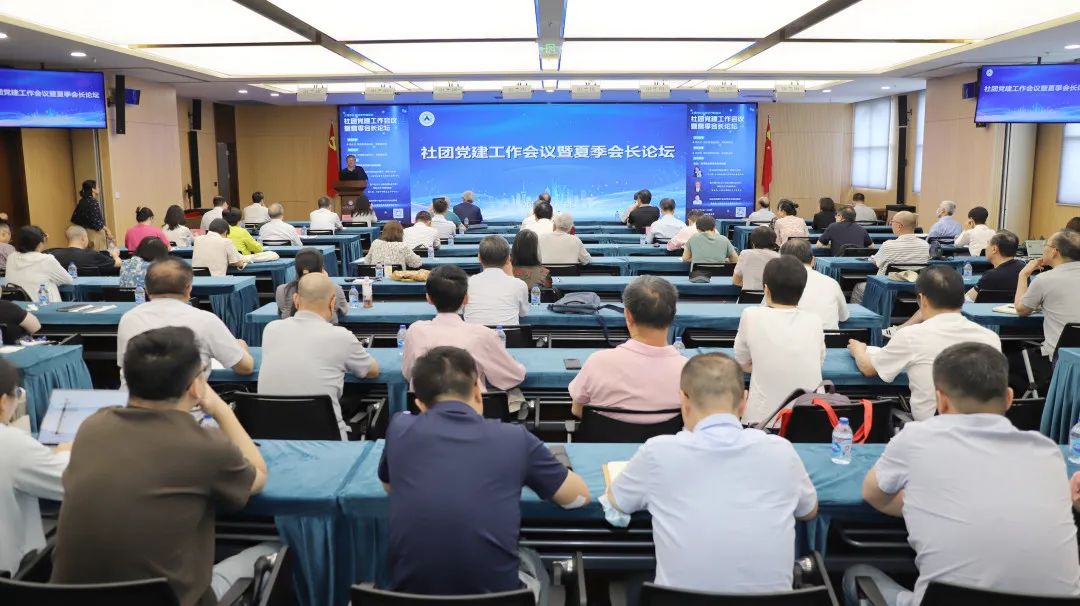Shanghai Federation of Social Science Associations holds the Presidents' Forum Summer
In the afternoon of July 6th, Shanghai Federation of Social Sciences Association held the Presidents' Forum Summer focusing on “Digital Technology Development and Social Governance”. Fu Changzhen, Vice President and Secretary-General of Shanghai Ethics Society, Chen Dongxiao, President of Shanghai International Relations Society, and Huang Xiaochun, President of Shanghai Community Development Research Society were invited to make keynote speeches on the forum. The titles of their speeches are: “New Ethics in the Digital Age: Theory and Practice”, “Emerging Digital Technologies and Global Governance System Reform: How to Navigate the ‘Digital New Era’ in International Relations Research”, and “Digital Transformation of Urban Governance and Its Profound Challenges” respectively.

“AI, while facilitating humanity, is also reshaping humanity. Between AI and humanity is a relationship of mutual empowerment, co-existence and common prosperity”, remarked Fu Changzhen during her speech. She emphasized the dual construction of technology and ethics in the digital age, clarified the essence and boundaries of technology, and established a framework for ethical governance of technology. Looking towards the future form of ethics, she pointed out that ethics in the era of AI should articulate a new sense of ethical responsibility towards the future of humanity. Ethics should serve as the guiding compass for technological development, proactively predicting potential ethical risks. Ethics and technology should progress in alignment, ensuring the technology’s benevolent impacts.
“The unique practices of this digital age has become the most significant part of the backdrop for studying contemporary international relations. This digital age is changing the study objects of international relations and will change the discipline of international relations itself.” Chen Dongxiao quoted numerous examples to expound on the foundational pathways through which digital technology shapes international governance from the micro, meso, and macro-perspectives. Considering the multidimensional and systematic impacts of digital technology on the international scheme, he suggested that future research in the field of international relations should establish close connections with regional and country-specific studies, focus on the relationship between digital technology and security, and explore the intersections between digital technology issues and existing international relations theories.
Huang Xiaochun conducted a thorough analysis of the underlying mechanism of digital transformation. He pointed out that the development of digital technology would not only be conducive to achieving refined governance and the “spillover” effect of information aggregation, but also enhance the comprehensive capability of dynamic resource allocation and risk monitoring. However, in the practice of governing digital transformation, there are also profound challenges, e.g., scenarios like “data can be uploaded but not downloaded”, “data can be used but not modified”, and the tension between massive data and outdated computing power. On this basis, he proposed that in the future process of urban digital transformation, it is important to streamline the institutional logic, understand the limits of technological governance, and promote broad public and social engagement.

